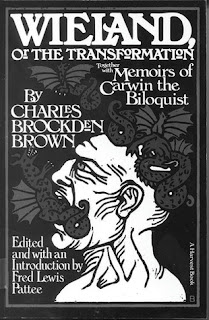 K. J. Bishop, The Etched City
K. J. Bishop, The Etched CityHer phantom conscience–that odd, purely intellectual, unemotional organ which had grown, like scar tissue, to replace her original conscience, lost in the war–didn’t inflict her with actual feelings for any of this suffering humanity, but she felt an aesthetic objection to the squalor and lowering of human dignity
 Drew D. Gray, London's Shadows: The Dark Side of the Victorian City
Drew D. Gray, London's Shadows: The Dark Side of the Victorian CityThe killer epitomized all that was rotten in the slums of Whitechapel–a phantom born out of the filth and degradation of Godless communities. From the moment he started killing poor women, ‘Jack’ became a cultural construction used to serve a multitude of diverse causes. He was purifying angel, an enlightened reformer and a harbinger of revolution.
Ann Radcliffe, A Sicilian Romance
His passions were vehement, and she had the address to bend them to her own purpose; and so well to conceal her influence, that he thought himself most independent when he was most enslaved.
Emily Bronte, Wuthering Heights
It was a strange way of killing: not by inches, but by fractions of hairbreadths, to beguile me with the spectre of a hope through eighteen years!
Whoever has pointed steel is not without arms; yet what must have been the state of my mind when I could meditate, without shuddering, on the use of a murderous weapon, and believe myself secure merely because I was capable of being made so by the death of another?
William Faulkner, The Unvanquished
I could see that too, who had had no presentiment; I could see her, in the formal brilliant room arranged formally for obsequy, not tall, nor slender as a woman is but as a youth, a boy, is, motionless, in yellow, the face calm, almost bemused, the head simple and severe, the balancing sprig of verbena above each ear, the two arms bent at the elbows, the two hands shoulder high, the two identical dueling pistols lying upon, not clutched in, one to each: the Greek amphora priestess of a succinct and formal violence.
Louisa Baldwin and Lettice Galbraith, The Shadow on the Blind and Other Stories
She walked erect before us, there was that in her bearing and appearance which reminded me of some distinguished Frenchwoman at the time of the Revolution, and I thought how many a proud head like hers had fallen from its white shoulders under the guillotine.
Felix Gilman, The Half-Made World
The Hotel’s luxury was for show, for outsiders, for the travelers who were only passing through. Was it meant to seduce? Liv took it as a threat–it said, Look how much our factories can make, and how easily. We could buy you.
Stephen Bates, The Poisoner: The Life and Crimes of Victorian England's Most Notorious Doctor
Poisoning only died out as a relatively common means of murder with the increasing certainty of forensic detection … and with the introduction of more stringent rules regulating over-the-counter sales of poison. Divorce-law reform, making it easier to escape a disastrous marriage or malign partner, also eventually helped.
James Thomson, The City of Dreadful Night
This little life is all we must endure,
The grave’s most holy peace is ever sure,
We fall asleep and never wake again;
Nothing is of us but the mouldering flesh,
Whose elements dissolve and merge afresh
In earth, air, water, plants, and other men.
We finish thus; and all our wretched race
Shall finish with its cycle, and give place
To other beings with their own time-doom:
Infinite aeons ere our kind began;
Infinite aeons after the last man
Has joined the mammoth in earth’s tomb and womb.








